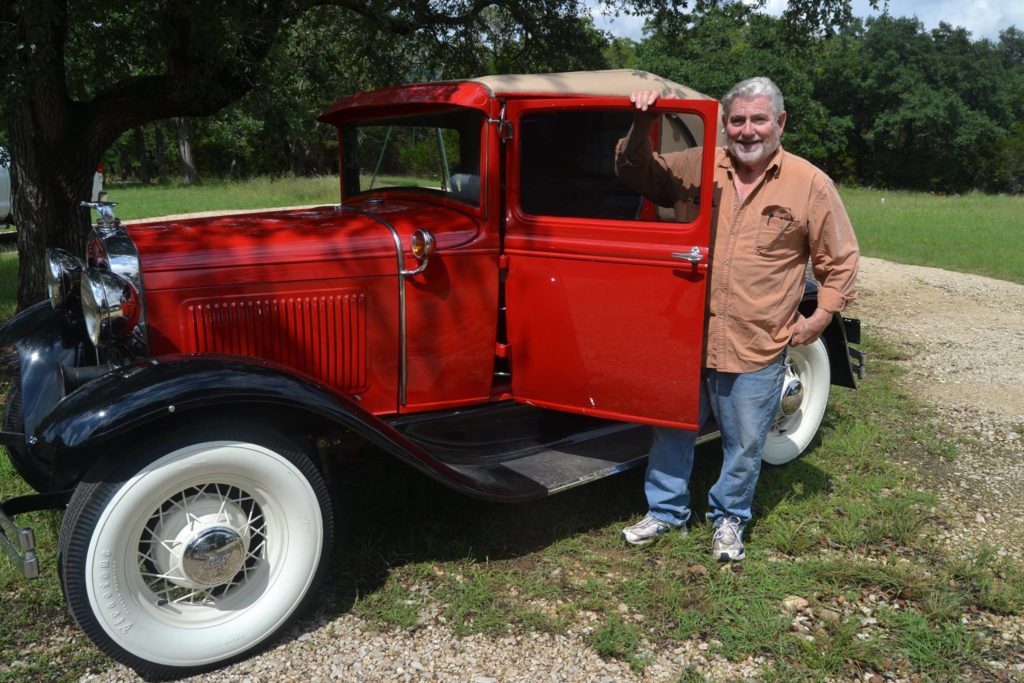 My Dad is a man. I don’t mean he is a male — that much is obvious. I mean he is a man in the sense that he is what we call a manly man.
My Dad is a man. I don’t mean he is a male — that much is obvious. I mean he is a man in the sense that he is what we call a manly man.
He was a good athlete. He hunts. He fishes. He has at least one of every power tool ever made…and he has used them all. Heck, at age 76 he still uses them all. He is an accomplished mechanic who restores vintage cars like Ford Model Ts. He welds. He mows. He chainsaws. He is a master with the smoker and grill. His brisket is still the standard by which I measure all others. What I am saying is that by every standard by which masculinity is usually measured, he is manly.
It has always been easy for me to look at him and see what a man looks like, but that is not what makes him so special. There are manly men everywhere. What makes him special is the ease with which he models both his manliness and his sensitivity. From the time I was a small child he was comfortable with hugging me and telling me he loved me. We still hug. We still affirm our love for each other. I have come to realize that not all fathers know how to do that. He is a gentle and kind man. He is a man of faith.
My grandfather died when I was five years old. I still remember him, but the memories are veiled by years and by my age at the time. So, I don’t know if he modeled this physical and verbal form of fatherhood for my Dad to see. I will find out today when I speak to him on Father’s Day. Regardless of where he learned it, Dad decided that he would tell his children that he loves them and that he would embrace them to demonstrate his love. He has been consistent with it. I am grateful for that. It helped me see that there is no contradiction between masculinity and sensitivity.
I have friends who did not have that kind of model in their father. Some of them struggle with showing affection to their children. I cannot blame them because the way we are raised has a powerful impact on how we parent. If you are one of those men who struggles with kindness, affection, and expressiveness with your children, let me challenge you to break the cycle. Find a man who does it the way you want to do it and have a conversation with him. Try it sometime with your children even though it may feel strange. You have the opportunity to start a new family tradition that you can pass along to your children and grandchildren. Boys need to see this positive practice of masculinity, and girls need to see it as well.
There are really no downsides to my Dad’s approach. I highly recommend it, and I try to practice it myself.
So, thank you, Miller Lee.
I love you.

What a great post! We certainly have a lot of great fathers in our family, and I count both you and Miller among that number.